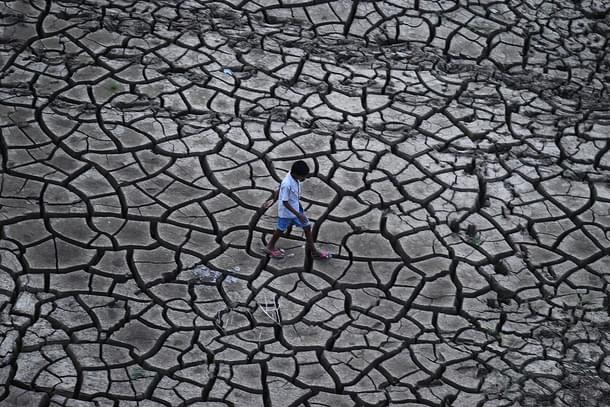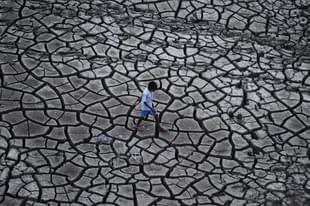Politics
Loan Waivers Are Duds: India Needs An Exit Policy For Unviable Farming
R Jagannathan
Mar 20, 2017, 01:50 PM | Updated 01:49 PM IST
Save & read from anywhere!
Bookmark stories for easy access on any device or the Swarajya app.


Put the emaciated picture of a poor farmer on the front page, add a graph on farmer suicides, obtain sound-bytes from unemployed farm labour and it is easy to make out a strong emotional case for farm loan waivers. After promising waivers as part of its Uttar Pradesh manifesto, BJP’s Maharashtra Chief Minister, Devendra Fadnavis, has been under pressure to write off farm loans in the state, with estranged partner Shiv Sena too getting vociferous on this count.
India has a bull market for bad ideas, and the most bullish market among them is the one for farm loan waivers. We have had one loan waiver or the other every now and then, either at centre or in one or more of the states. Andhra Pradesh, despite nursing a huge revenue deficit, launched one unaffordable waiver two years ago. One hopes Fadnavis does not succumb, for the real story is not that government is deaf to farmers’ cries for help, but the exact opposite: there has simply been too much concern for keeping unviable farm businesses alive by extending unsustainable artificial support and subsidies instead of hastening their demise and helping the victims move to paying jobs with a future.
India needs an exit policy for unviable farmers and farming, not indefinite life support for them to stay in comatose conditions forever. When 67 per cent of India’s farms are below one hectare, a size that is not optimal for ensuring higher investments in raising productivity and incomes, how can endless subsidies solve this problem?
The Fadnavis government estimates the cost of a farm loan waiver at over Rs 30,000 crore; consider how many new jobs this kind of investment can create if farmers and farm hands are instead coaxed to sell their land, learn new skills, and move into rural and urban jobs in industry and services? Farmers selling land would not only get a good price in today’s conditions, but also help create more jobs by enabling investments in rural and urban infrastructure.
The reality is that both states and banks will be bankrupting themselves by trying to help marginal and small farmers remain on the farm, when the resources would be better used to ease the transition of small farmers away from this curse.
It is no one’s case that farmers should not be given relief in exceptional circumstances, but the burden of natural disasters should be substantially borne by insurance, and there are now deeply discounted crop insurance schemes available to farmers. In even more exceptional situations, debt relief can be considered, but only on accumulating interest dues, not the principal. If farmers get the idea that loans need never be paid, it is the surest way to ensure that no loans are given to farmers.
Ask yourself: the UPA farm loan waiver of 2008 cost the government more than Rs 70,000 crore. If this scale of loan waiver did not ultimately help farmers move to more sustainable sources of income, and Rahul Gandhi now thinks another farm loan waiver is needed, what is the guarantee that another round of loan waivers at the state level will cure the disease? The answer is zilch.
A more fundamental rethink is required by political parties and economists on the viability of farming in large parts of India. Consider these arguments:
One, no sector of the economy gets subsidies on inputs (power, diesel, water, fertiliser, seeds, loans) as well as output (minimum support prices) like farming does. If farming is still unviable, economic strategies should be focused on getting people off farms and into industry and services in semi-urban and urban areas.
Two, excess subsidisation of farms is actually leading to uneconomic land use. When the need of the hour is mechanisation and more commercial or large-scale farming, subsidies actually lock poor farmers into small farms. It prevents them from cashing out and finding their fortunes elsewhere. Subsidies also result in overuse of cheap fertilisers and degradation of soil, and wastage of water (and power and diesel) in producing water-guzzling crops like sugarcane or rice.
Three, efficient use of land can be ensured and jobs created with greater urbanisation, and not by the retention of underemployed workers in farms and rural areas. Even socially, if you want to defeat the scourge of casteism, urbanisation is the answer, as Babasaheb Ambedkar had maintained.
Four, our politicians are also living in la-la land in believing that the farm vote is forever. India is 32 per cent urban, and a World Bank study says that another 20 per cent of Indians live in places that are not categorised as urban, but hold urban-like features and expectations. This is where investment needs to go, not to keeping sub-optimal farmers in business through regular farm loan waivers.
The writing on the wall is clear. India’s future is urban. The vote bank will be increasingly urban. The rural vote will be vanishing. The number of farmers in the country will dwindle. They need loans to migrate out of farming and set up businesses, not loan waivers to force them to continue doing what does not earn them a decent living.
The call for repeated farm waivers is a sign that farmers need to get out of farming when they can. It is the government’s duty to aid this change, not retard it. Politicians should stop pandering to a diminishing vote bank.
(A part of this article was published in a modified form in DB Post)
Jagannathan is former Editorial Director, Swarajya. He tweets at @TheJaggi.





